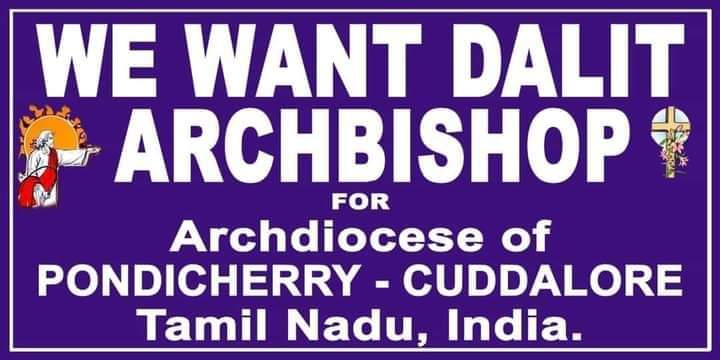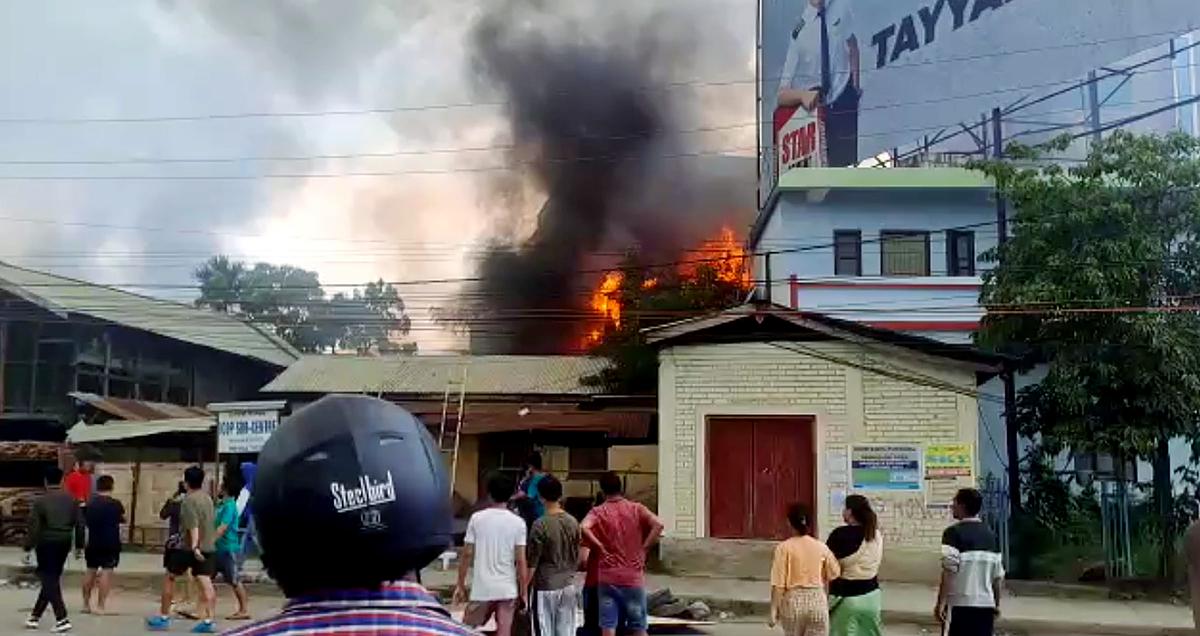By Jose Kavi
New Delhi: The demand for a separate Rite for Dalit Catholics is gaining momentum with many supporting it as a solution to caste-based discrimination in the Indian Church.
“If this can bring about much needed respect for the Dalit Catholics and wipe out that invisible line of casteism, I am for it. In fact, I will join the movement wholeheartedly and help in attaining the status being demanded,” says A C Michael, a former member of the Delhi Minorities Commission.
Michael shared his thoughts with Matters India March 11, a day after the National Council of Dalit Christians (NCDC) urged Pope Francis to create a Catholic Rite like the Kerala-based Syro-Malabar and Syro-Malankara Churches.
A press release from NCDC coordinator Franklin Caesar Thomas says, “We urge the Pope to recognize the Dalit Catholic Rite like Syro-Malabar and Syro-Malankara Rites with all divine rights and property. According to Thomas, who is also a Supreme Court lawyer, the Rites in the Catholic Church are based on orientation and rituals.
Thomas also points out that Christianity does not have one cultural expression. “It also reflects different faces of the cultures and peoples that received the faith and allowed to take roots “with unwavering fidelity to the Gospel and the Church’s tradition.”
If the Pope approves a new separate Dalit Catholic rite, he says it would show to the world that each group of people can pray to the God of Jesus Christ from their cultural riches and expressions without altering the unity of the Catholic faith.”
The new rite will adopt the character and traditions of various Dalit Catholic communities, the NCDC leader asserted.
Dalit Catholics in India are currently spread over Latin, Syro-Malabar and Syro-Malankara Churches in the Catholic fold.
The Catholic Church is comprised of six different liturgical rites, and within them exist 24 particular Churches. These sui iuris (autonomous or self-governing) Churches are all in communion with one another in the Catholic Church and recognize the primacy of the pope.
A rite represents an ecclesiastical tradition about how the sacraments are to be celebrated. As the early Church grew and spread, it celebrated the sacraments as would be best understood and received in the context of individual cultures, without ever changing their essential form and matter.
Michael, however, is apprehensive that a separate Rite would thicken “the invisible line of casteism” and create a deep chasm between Dalit Catholics and others in the Church. “Then it would be a disastrous move as that would be beginning of officially a Caste System in our faith,” warns the lay leader.
At the same time, Michael reassured “my brethren of Dalit Catholics that I am with them in their genuine demand of wanting to be part of hierarchical structure in governing the affairs of the Universal Catholic Church.”
Sister Sujata Jena, an activist nun based in Bhubaneswar, says the need of the hour in the Indian Church is to have proportional number of Dalit bishops.
“It is high time the Dalit Christians got recognition in the Church and experienced equality and dignity as children of the same Father,” asserts the member of the Congregation of the Sacred Hearts of Jesus and Mary.
According to her, the Dalit Christians’ struggle has been too long and it is getting worse as time passes.
“It must come to the knowledge of our Holy Father Pope Francis without further delay if no action is taken by the concern authorities,” she told Matters India.
She wants an end to casteism and discrimination against Dalits in the Catholic Church in all forms. She also supports the Dalit groups’ demand for equal treatment to Dalits in the selection of priests and bishops.
“None of India’s four cardinals and 31 archbishops has a Dalit background. Similarly, among 188 bishops, only 11 are from the Dalit community. In caste-ridden Tamil Nadu, only one among 18 bishops is from a Dalit background,” explained Sister Jena, the deputy director of the Excellent IAS Academy in Bhubaneswar and coordinator of the social projects of her congregation.
Jesuit social activist Irudhaya Jothi says Dalit leadership in the Church will help lead the faithful closer Jesus and build greater egalitarian community. “There is a strong prejudice against the Dalit leadership and the Church suffers a lot from the Hindu caste system,” he told Matters India.
Carmelite Sister Manju Devarapalli of Hyderabad, who supports the demand for the separate rite, says the Dalit community has been oppressed for ages by the upper caste. “And the Church has been very partial as well,” said the activist nun who on March 8 received the “Bharat Ratna Mother Teresa Award” from the All Christian Federation.
According to her, the Dalit community has many “highly qualified and experienced and dedicated members who deserve all the rights.”
Melwyn Fernandes, Mumbai-based general secretary of Association of Concerned Catholics, a pan India group, regrets the prevalence of the caste system in Christianity although it does not recognize it.
“We blame Hindu for the caste system. Now the same problem is staring at our face,” Fernandes told Matters India.
At the same time he finds the demand for a separate Dalit rite rather complex issue for his association that functions as a watchdog on erring clergy. “We need time to discuss this matter at our core committee,” he added.
Credit: Matters India










